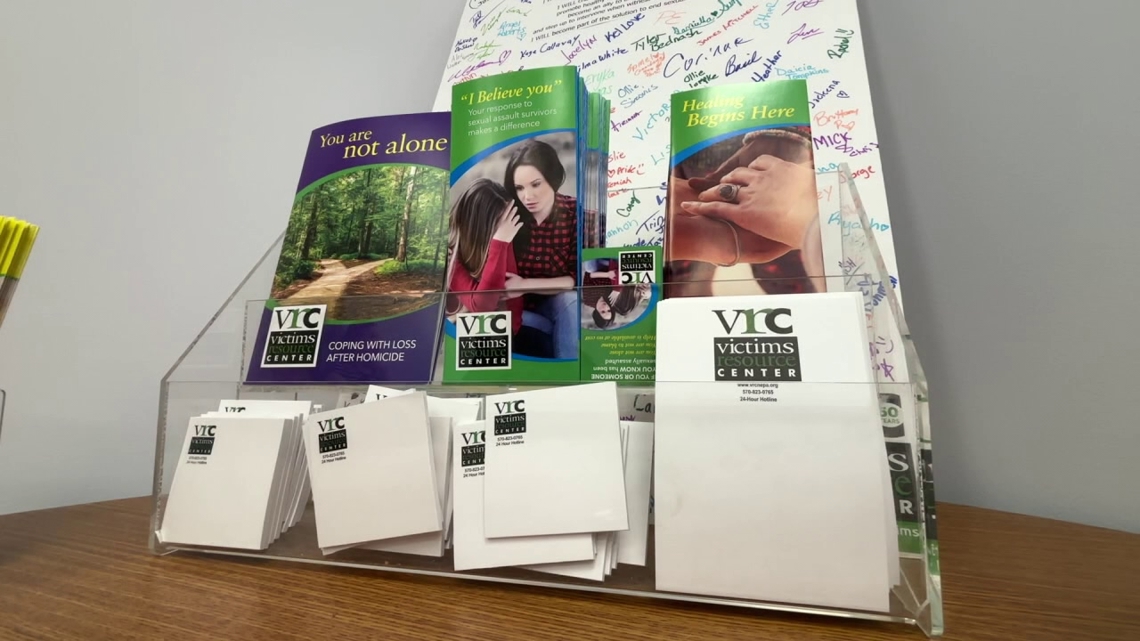
The jury acquitted Sean “Diddy” Combs of major charges, raising the need for victim support and education.
WILKES-BARRE, Pa. — At the Victims Resource Center in Wilkes-Barre, the mission is clear: provide daily support and services to victims of crime, particularly those impacted by sexual assault and sex trafficking.
In light of the recent verdict in the high-profile trial of hip-hop mogul Sean “Diddy” Combs, Assistant Manager of Client Services Mackenzie Jennings says her interest in the case runs deeper. Like many across the country, she closely followed the trial coverage, but her perspective was shaped by her daily work with survivors.
“I think it was interesting because it was put on a public platform so quickly, and so much was shared that it drew my interest,” Jennings said. “But also, I like to stay informed about what’s happening with victims’ rights.”
Prosecutors alleged that Combs used his business empire to lure and traffic his ex-girlfriends. Over a six-week trial, they presented testimony from 34 witnesses and introduced over 1,000 pieces of evidence. Despite this, the jury acquitted Combs of the most serious charges, including racketeering conspiracy and sex trafficking.
Despite that, Jennings says trafficking cases are incredibly hard to prove. She says she was not surprised by the outcome, though still disappointed.
“I think a lot of people confuse domestic violence, which was a lot of what was presented in the case, with sex trafficking. A lot of times they are connected,” she explained. “Based on the charges and the circumstances, I’m not necessarily surprised, but I am disappointed.”
She emphasized that sex trafficking cases are among the most difficult to prove, largely because of public misconceptions and victim-blaming.
“We see that a lot, especially with victims here in our community,” Jennings said. “People believe they want to be involved, that they’re doing it for money. They’ll label them as sex workers. The blaming is the worst part because it makes victims not believe themselves and feel like they were part of it.”
Although Combs may still face up to 20 years in prison on separate prostitution-related charges, Jennings believes the broader impact of the trial will be felt by survivors of trafficking, both nationally and locally.
“I think it’s going to help because people are learning more about sex trafficking,” she said. “But it’s also going to make it harder for people to want to come forward.”
Regardless of national headlines, Jennings and her colleagues at the Victims Resource Center remain committed to their work, ensuring that survivors in the Wilkes-Barre area have a safe place to turn and a team of advocates ready to support them.
